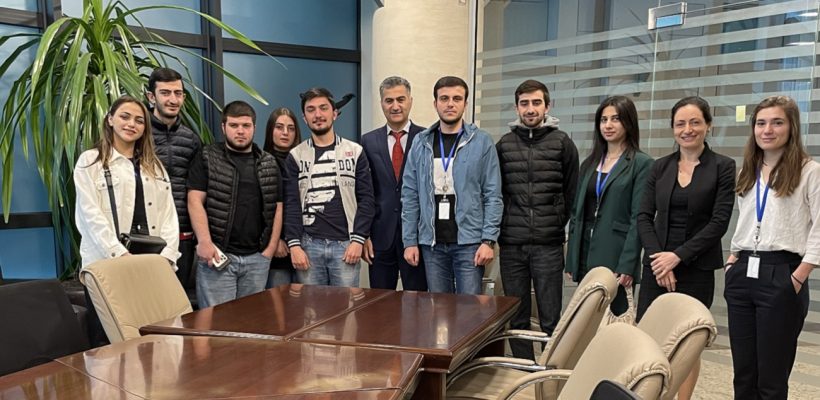
BAB Students Attend a Session at the Central Bank of Armenia
2 min readYEREVAN, Armenia — On April 13, within the framework of the BUS218 Financial Inclusion and Sustainable Development course taught by BA in Business (BAB) Program Chair Dr. Knar Khachatryan, students at the American University of Armenia (AUA) attended a session on “Digital finance as an inclusion tool” at the Central Bank of Armenia (CBA).
The students were hosted by Komitas Stepanyan, IT Director and CyberSecurity Director, Corporate Services and Development Directorate, Central Bank of Armenia. Mr. Stepanyan provided a holistic and insightful overview of digital financial services (DFS) trends, basic regulatory enablement for DFS, and current policy developments in Armenia.
BAB student Vsem Voskerchyan commented, “It was an interesting experience to learn about the steps the Central Bank is taking to solve financial illiteracy problems in Armenia.”
“Discussing financial inclusion and its implications with students is of vital importance today,” stresses Dr. Khachatryan. “Inclusive and sustainable finance benefits the poor directly not only in monetary terms, but also through non-monetary opportunities, such as access to education and healthcare. Financial inclusion is featured among the United Nations Sustainable Development Goals aiming to end poverty by 2030.”
The BUS218 course was developed as part of the EURASIA project carried out in partnership between AUA and the University of Agder (Norway). It is funded by the Norwegian Ministry of Foreign Affairs and administered by the Norwegian Agency for International Cooperation and Quality Enhancement in Higher Education.
Founded in 1991, the American University of Armenia (AUA) is a private, independent university located in Yerevan, Armenia, affiliated with the University of California, and accredited by the WASC Senior College and University Commission in the United States. AUA provides local and international students with Western-style education through top-quality undergraduate, graduate, and certificate programs, promotes research and innovation, encourages civic engagement and community service, and fosters democratic values.
